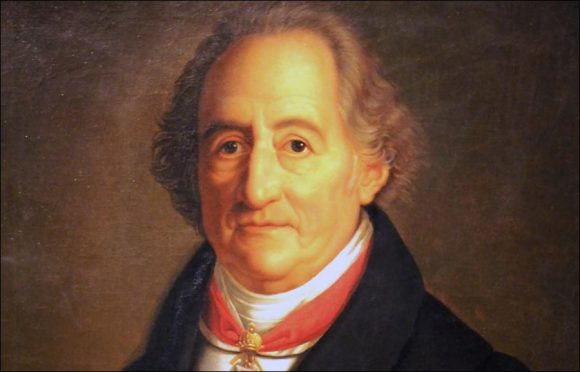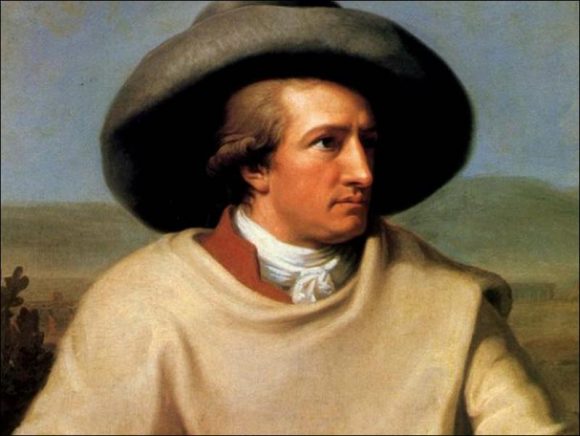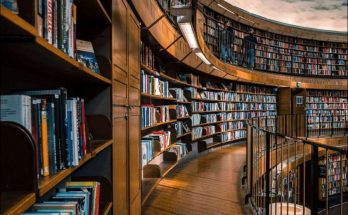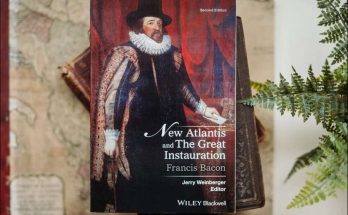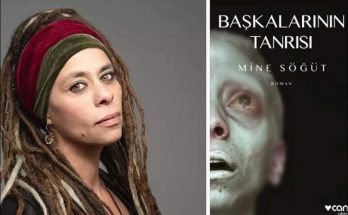Johann Wolfgang von Goethe (1749-1832) poet, critic and naturalist. Even today it remains the most important person in German literature. It is the peak name of cultural accumulation not only in the era of Goethe, which it gave its name, but also for future generations.
Johann Wolfgang Goethe was born on August 28, 1749 in Frankfurt Main. Together with her sister Cornelia Friederike, she takes private lessons from her father, especially in matters that were common at that time, and in foreign languages. He spent his childhood in Frankfurt between 1749 and 1765. The house where he was born and lived is currently exhibited as a museum. On your next trip to Frankfurt, I say do not pass without visiting here.
1765-1768: Bohemian Life in Leipzig
Goethe went to Leipzig in 1765 to study law at the force of his father. The main part he was studying was more interested in fine arts than law, and he already wanted to read a chapter in this direction. For this reason, he attended poetry lessons of Christian Fürchtegott Gellert (Enlightened philosopher and poet, the most read writer of his time) and took drawing lessons from Adam Friedrich Oeser. Goethe, who got rid of his father’s oppressive education, lived a more bohemian life in these years. He continues to live in Leipzig, which was called “Little Paris” until 1768.
1768-1770: Frankfurter Intermezzo
In August 1768, excessive bleeding from tuberculosis forces him to return to Frankfurt. The convalescent period causes some changes in Goethe’s view of life. A family-friendly Lady frequently visits Goethe in her bed and brings Goethe closer to religion and piety (“Pietizm”). He stayed there until he went to Strasbourg in 1770 and completed his law education.
In Strasbourg, Goethe became friends with Johann Gottfried Herder, who introduced himself to other young writers who were deliberately away from the rules and forms of traditional poetry. Goethe first recognized the Islamic religion and prophet through Herder, who was Pastor himself. Herder recommends Goethe to read Goethe’s first German translation of the Qur’an (“Die türkische Bibel”, “Turkish Gospel”, this work was translated directly from Arabic by David Friederich Megerlin and is the oldest known German Quran translation.)
“Storm and Enthusiasm (Sturm und Drang”
This group of young poets focuses on the creative freedom and emotional expression of the poet instead of strict rules and forms in the poem and calls his literary movements “Sturm und Drang”, namely “Storm and Enthusiasm”.
These new influences can be found in the poems written by Goethe for the priest daughter Friederike Brion from Sesenheim when he was a student in Strasbourg, but this attitude has become clearer in his style in Goethe’s first successful drama “Götz von Berlichingen”.
The Sorrows of Young Werther
His doctoral dissertation on State and Religion (Church) was rejected by the delegation in Strasbourg in 1771. Goethe, who was influenced by Pietism and Spinoza, would of course disturb someone. Some theologians suggest that he was crazy about Goethe and had religious insulting ideas. Although he / she cannot get the title of doctor, he gains the right to be a law teacher with a lower status in the same university through an alternative way.
During his legal internship at Reichskammergericht in Wetzlar in 1772 (the highest authority of the time, comparable to today’s Constitutional Court), Goethe falls in love with Charlotte Buff, who is engaged to his friend Johann Christian Kestner. When Goethe heard that the embassy secretary Karl Wilhelm had committed suicide due to love of Jerusalem, his elements in his biography were intertwined with his own unfortunate love experience, and he wrote all this in the Pain of Young Werther, a letter novel. The book is renowned for unprecedented success and achieves true cult status.
In 1775, Goethe was appointed to Weimar by Duke Carl-August. First he becomes an administrator there. As a lawyer, he takes part in the hidden council of the Duke and is declared knight by the Duke in 1782. Since then, he begins to bear the phrase “von” in the surname. In the following years, Goethe lived as a poet, but did not stay with it. He also took on the task of shaping the festivals in the palace. However, other duties are at the forefront. For example, it does not neglect to take over the mining commission in addition to its duties.
This period was shaped by the close relationship with Charlotte von Stein, an influential lady of Duchess Anna Amalia, who was married to Gottlob Friedrich von Stein, who included Goethe in her immediate environment. In particular, his relationship with Charlotte von Stein had an inspiring effect on Goethe. He took creative sparks from him and devoted some of his texts, especially some of his poems.
Journey to Italy
The gruesome nature of Goethe cannot bear any more of these administrative duties and palace life, no matter how attractive. Somehow this should get rid of the boring environment and life. In 1786, Goethe escaped from this narrow circle under the pretext of his health and embarked on an almost two-year journey to Italy. This journey is written in his book “Journey of Italy”. He expresses his experiences on this journey as a kind of rebirth.
Although he did not include the people of the palace in Weimar in his travel plans, Charlotte von Stein from Italy continued his correspondence with the Herder family and the Duke in the following months. On the one hand, he gathers new impressions and on the other hand he worked on old texts. He brings the drama “Iphigenie auf Tauris” into strings, completed Egmont, and reconsider the unfinished novel “Wilhelm Meister”. In general, Goethe’s trip to Italy marks the transition from Sturm und Drang to the classic phase.
When he returned to Weimar in 1788, although he had problems keeping up with the conditions there, he felt his friendship with Herder and his love for Christiane Vulpius at home again. Because Christiane is a more simple woman, Goethe has to hide this love from the people of the palace for a while. Despite years of marriage with Christiane for years, Christiane moved to Goethe just a few weeks later, and in 1789 their son August was born. The fact that Christiane has not read any of Goethe’s works is not a problem for this relationship. Because Goethe accepted this situation and struck different features of the person he married. Despite their unmarried partnership, we will have to wait a little longer for Goethe to officially marry Christiane. .
Friendship with Friedrich Schiller
Intense collaboration and friendship with Friedrich Schiller since 1794 leads to new literary creativity and productivity. “Roman Laments”, which poetically combines Goethe’s Italian impressions and his love for Christiane with ancient motifs, arises from this collaboration. In addition, “Torquato Tasso” is complete and Goethe continues to work on “Faust”.
For Schiller’s magazine “Die Horen” (The magazine is named after the goddesses who control the order of daily life in Greek mythology), the story collection called “Amusements of German Immigrants”, which ends with the famous “fairy tale”, is created. Even though his other novels are criticized, “Fairy Tale” is enthusiastically welcomed by the audience. This creative and creative friendship of the two top names of the German literary world lasts up to 1805. Schiller’s death in 1805 is very much affected by Goethe. In a letter he wrote to Carl Friedrich Zelter, his friend, who is 10 years younger than him, states the loss:
“I thought I was losing myself and now I’m losing a friend and half of my presence. Actually, I have to start a new lifestyle; but there is no way to do this at this age. Now I look directly in front of me every day and do my next name without thinking of any results. ”
Goethe; The French Revolution suspects political changes after Napoleonic wars and restoration. He states this issue as follows; “I believed that any major revolution was the fault of government, never of the nation. Governments are consistently justice and as long as they develop, revolutions become totally unnecessary; so that they welcome them with timely innovations and do not struggle for a very long time, until the lower section endures the necessities. ”
With Herder, who welcomes the French Revolution very positively, they fall into serious disagreements. Even though his view of the revolution was so, Goethe got along well with his reader, Napoleon, and he received a medal. After Weimar was looted by French soldiers in 1806, Goethe eventually married Christiane. The fact that Christiane, who is younger, treats the soldiers who came to his house and protected Goethe, may have triggered this marriage.
In 1809, he wrote the novel “Die Wahlverwandtschaften” (which can be translated as elective relatives). We can say that this work is a turning point towards Goethe’s age. Goethe collects and organizes the letter collection and begins writing his biography “Poetry and Truth from My Life”.
The cycle of “West-East Divani” poems such as “Faust II” is welcomed by only a few friends and the wide audience cannot access these works of Goethe. Especially, “Apprenticeship Years of Wilhelm Meister” does not attract much attention from the readers due to its content. While returning from a journey due to his illness, he put the paper “Marienbad Paper” (Marienbader Elegie) on the paper. This work has reached a large audience.
Goethe as a Universal Genius
As a “poet prince”, Goethe passed away on March 22, 1832. It remained open to discussion that his last words were “Mehr Licht”, that is “more light”. Goethe was buried in Weimar on March 26. Goethe leaves many memories behind and a genius.
One of Goethe’s most important attributes is undoubtedly “Universalgenie”, that is, “universal genius”. It is generally considered the last of its kind. Initially, his main interests were Earth Science, Mining, Plant Science and Osteology (Bone Science). In 1784, he managed to discover an unexplored jaw bone in this area. In the same year, he wrote a comprehensive article on Granite. Another subject that he concentrated on and worked extensively is the Color Theory called “Farbenlehre”.
Color theory is the teaching of systems and order of colors. Goethe, who was intensely discussing the issue of color with painters and philosophers, dealt with colors as a whole. He discovered the phenomenon of subjective colors and the basic principles of color perception. In particular, this holistic view had influenced Goethe’s worldview. His view of nature, religion or life has been greatly influenced by his holistic view. The fact that Goethe has shaped science to this degree makes it special from other writers and saris. This topic undoubtedly deserves to be examined in a separate article.
“Faust I”, the first part of the tragedy, is considered to be the most important and most cited work in German literature today. Unfortunately, it is not possible for us to understand Goethe’s life sufficiently based on this short article. Even though superficially, I tried to divide the life of the Prince of Poet into sections with the most important events. Those who are interested in Goethe’s biography can first read the work named “Goethe – A Novel of a genius” written by Hasan Ali Yücel. Truth ”.
In the next articles, I will share with you the view of Goethe, religion, religion and religions, especially his interest in Islam, and the issues we need to know and understand about Faust through the East-West Court. However, before I finish the article, I would like to add the statements of a few famous figures about Goethe here;
“Goethe is the last German I admire,” says Nietzsche.
Another name for the top of German literature is Hugo von Hoffmansthal Goethe: “We have no new literature. We have Goethe and approaches. ”
“Goethe withdrew the development of the German language probably because of the power of his works,” Franz Kafka said, thinking about Goethe.
Isn’t it worth thinking about the lineup of methys about the tastes of Goethe?
Views: 238
